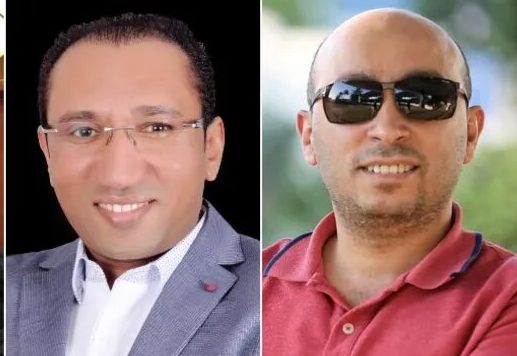Last month, Washington expressed its concern over the prolonged detainment of the journalists.
An Egyptian court renewed the detention of three Al Jazeera Mubasher journalists on Thursday despite years of imprisonment without trial.
The Qatar-based broadcaster reported the latest court decision to extend the detention by 45 days of Hisham Abdelaziz, Rabie El-Sheikh and Bahauddin Ibrahim.
In February, an Egyptian court made the same decision regarding Abdelaziz and Ibrahim, who have been imprisoned for more than three years.
The periodic renewal of 15-to-45 days has been a widely known tactic often used by the Egyptian regime.
During the same month earlier this year, Al Jazeera called for the “immediate release” of all of its journalists, urging international human rights organisations to stand in solidarity with its journalists.
El-Sheikh has been behind bars for the past 19 months following his arrest in 2021, when he travelled to Cairo for a family visit.
Ibrahim was arrested in Alexandria in 2020, while Abdelaziz was arrested in 2019, when he was subjected to an enforced disappearance for almost a month.
The journalists were accused of “joining a banned group” and “spreading false information”, accusations often used by the regime in Cairo to crack down on journalists and political dissidents.
In a previous statement, Al Jazeera revealed that Ibrahim has been subjected to “enforced disappearance, torture, and solitary confinement, while being blindfolded and handcuffed.”
In May last year, an Egyptian court sentenced Doha-based Al Jazeera presenter Ahmed Taha to 15 years in prison in absentia.
Taha was sentenced over claims of “spreading false news” during an interview with Abdul Moneim Aboul Fotouh, a leading opposition figure and former presidential candidate in 2018.
Growing concern
The prolonged imprisonment of Al Jazeera journalists has been an issue of concern among rights groups, including Reporters Without Borders (RSF).
According to RSF, Egypt is one of the world’s biggest jailers of journalists, with many spending years in jail and solitary confinement without being formally charged or tried.
Last month, the United States expressed its concern over the extended detainment of the Al Jazeera journalists in its latest country rights report on Egypt.
The State Department report said that the journalists are imprisoned for “years longer than the legal limit”.
Al Jazeera has been subjected to violations of media freedom since the 2013 military coup that saw current Egyptian President Abdel Fattah El-Sisi seize power from then-leader Mohamed Morsi—Egypt’s first democratically elected leader.
The network’s bureau in Cairo was shut down during the events in September 2013 as it had provided in-depth reporting into the horrific scenes in Egypt at the time of the 2011 Arab Spring.
The ongoing imprisonment of Al Jazeera’s journalists come despite the resumption of ties between Qatar and Egypt following the 2017 diplomatic rift.
At the time, Egypt joined Saudi Arabia, the United Arab Emirates, and Bahrain in imposing an illegal air, land and sea blockade on Qatar.
The quartet accused Qatar of supporting terrorism – a claim that the Gulf state has consistently denied and slammed as baseless.
Shutting down Al Jazeera was among the 13 demands presented by the four countries in order to lift the embargo. However, Qatar rejected all 13 demands.
Since the return of ties in 2021 under the Al-Ula Declaration, Al Jazeera has resumed broadcasting in Cairo.
Last year, Egypt’s Supreme State Security Prosecution (SSSP) released Al Jazeera journalist Ahmed Al-Najdi, who was arrested in 2020.
While Al-Najdi’s release coincided with Sisi’s visit to Doha, it remained unclear whether the matter was on the agenda during a meeting with Qatar’s Amir Sheikh Tamim bin Hamad Al Thani.







